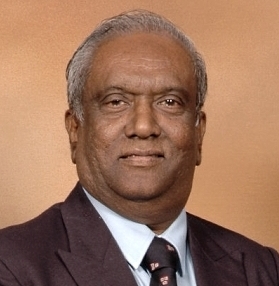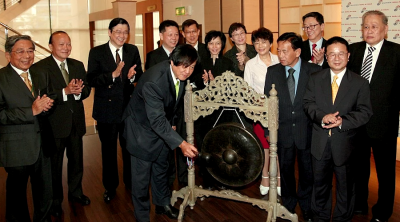
By Tan Sri Ramon Navaratnam
Minister of Finance Tengku Dato' Seri Zafrul's recent Interview about our capacity to finance the stimulus packages is viewed as most welcome, assuring and timely.
Most Malaysians have been wondering how the government would be financing the RM260 billion Prihatin economic stimulus, and now the new RM35 billion package, to fight COVID19 to protect the people's health and to arrest the decline of the economy.
Where is the money coming from is the question in the minds of many people. Can we afford all these necessary but perhaps insufficient subsidies?
Depending on how long this COVID-19 will last, despite the heroic work undertaken by the decisive government, the compassionate frontliners and the strong support from the people, will the government budget be able to sustain the financial strains and vast pressures now imposed on its budget deficit?
Thankfully the Minister of Finance has said that the budget deficit will be allowed to take the strain by agreeing to grow to about 6% this year, from an estimated 3.4% projected in Budget 2020.
I agree that the World Bank, IMF and hopefully the commercial rating agencies will be able to accept our larger budget deficits. These bigger deficits are inevitable if we are to effectively overcome our national crisis in our people and in our economic prospects.
Our national debt will also increase, but the government will prudently focus on domestic borrowing and not foreign debt which could put pressures on our balance of payments.
Check the growing deficits to avoid a financial crisis?
We already have COVID-19, the economic crises, but let's be very careful to avoid a financial crisis as well.
If our deficits and debts rise too high, there can be a financial crisis as well. This is a threat and likelihood that we cannot afford.
Hence, we have to check more carefully on the following:
1. Monitor the rising deficit very closely. We can easily lose sight of the rising deficit as we are under too much pressure to grant more and more subsidies. We will need periodic reports to keep track of our deficit.
2. Where the government cannot afford to do much more, we must give the private sector more freedom to expand its business activities without too much protectionism. Some old restrictive business policies and quotas, licenses, Approved Permits, old rules and regulations, etc., need to be reviewed, revised and reformed to enable true businesses to emerge and expand.
3. GLC's must be prepared to invite more competition to businesses that can compete more efficiently, to benefit the people and the economy as a whole.
4. We have to develop a New Economic Model that can serve the country and our people more productively. We have to especially push harder to get into the digital economy. We must follow the New Normal more diligently and expeditiously.
5. Our brain drain must be reduced drastically by removing policy constraints in order to enrich our own resources and capacity to attract more foreign Investment and higher levels of technology.
6. With the large expenditures approved to stimulate the economy, we have to watch out for a possible increase in corruption and the many leakages that can occur and erode public confidence in our stimulus packages.
7. Income disparities that are causing so much misery in the United States and all over the world must be avoided in Malaysia. The present stimulus packages can be extended to the poor, many of whom can't have a decent meal even in relatively wealthy Malaysia. It's a national shame!
Conclusion
The government must be commended for doing well in countering COVID-19 and its adverse effects on the economy.
However, the budget deficit must be watched and checked closely to maintain and strengthen the budgetary integrity.
And for the recovery stage, there have to be more concrete reforms to adjust to the New Normals developing worldwide, in building a better Malaysia.
(Tan Sri Ramon Navaratnam is the Chairman of ASLI Center for Public Policy Studies.)
ADVERTISEMENT
ADVERTISEMENT


































